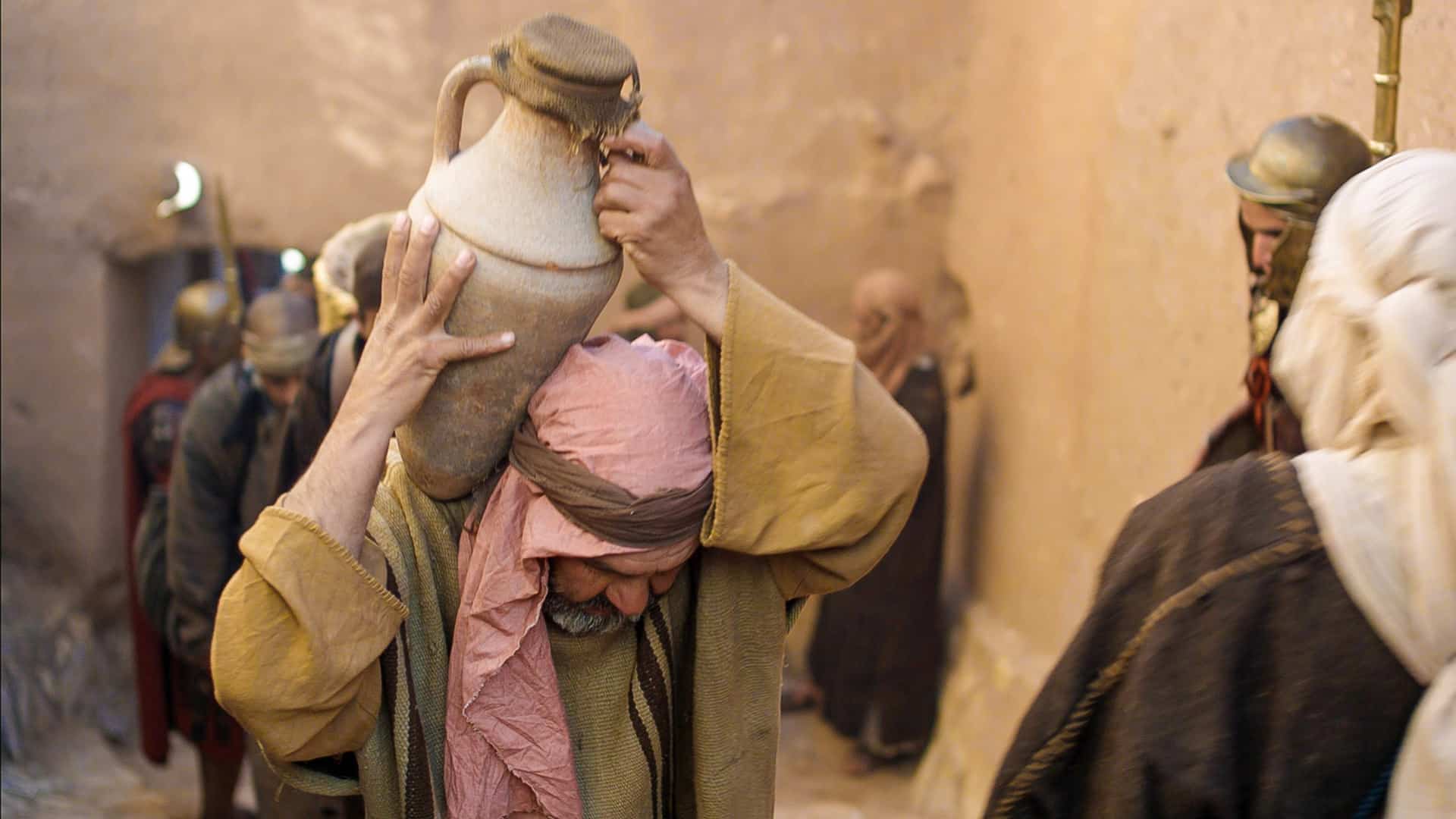Luke 22:7-13 indicates that when “the Day of Unleavened Bread” (v. 7) arrived, Jesus directed Peter and John to go and prepare the Passover meal for Him and for all the disciples. The two asked Jesus where He wanted them to go to prepare the meal, and Jesus responded with clear and specific instructions: “When you’ve entered the city, a man carrying a water jug will meet you. Follow him into the house he enters. Tell the owner of the house, ‘The Teacher asks you, “Where is the guest room where I can eat the Passover with My disciples?”’ then he will show you a large, furnished room upstairs. Make the preparations there” (vv. 10-12).
It is noteworthy that Peter and John were to look for “a man carrying a water jug.” Women typically carried jugs; men carried skins. Thus the man would be easy to spot. He would lead them to a specific house, where Peter and John were to ask the owner, a different individual, the location of “the guest room where” Jesus, “the Teacher,” could share the Passover meal with His disciples. At that point the owner would show Peter and John an upstairs room where they could get the meal ready. The owner apparently was a follower of Jesus, and the man carrying the jug of water may well have been a follower also. Luke went on to report, “So they went and found it just as He had told them, and they prepared the Passover” (v. 13; see also Matt. 26:17-19; Mark 14:12-16). These details could have been prearranged, of course; but it is not at all unreasonable to suggest that Jesus spoke with supernatural knowledge and that the men to whom He referred were simply moved by God to do as Jesus described.
As we have indicated, the upstairs room to which the homeowner directed Peter and John was the place Jesus shared the Passover meal with His disciples. In the context of this commemorative meal, Jesus instituted the Lord’s Supper. Moreover, in this same location prior to the Passover meal, Jesus washed His disciples’ feet (see John 13:1-20). That night, the upper room also witnessed Jesus’ identifying His betrayer; Judas’s departing out into the night; Jesus’ giving His disciples a new command—the command to love one another; and Jesus’ predicting Peter would deny Him three times. John’s account of these events can be found in John 13:21-38. Then, in the same room, Jesus began to share some very important things with His disciples; we can be grateful that the Holy Spirit moved the apostle John to record His statements. John 14:31 implies that Jesus and His closest followers left the upper room before the Lord spoke the words recorded in John 15–17; but John 18:1 indicates they didn’t leave until after He’d said all these things. This is not a difficult problem to solve—how many times have you been with family or friends at a particular place and the suggestion was made to leave (or the direction was given) yet no one got up immediately? Apparently this is the kind of thing that happened in this instance. Other possible scenarios have been suggested, but we must not see this as a big problem. We simply lack the information from Scripture to fill in all the details.
Tradition holds that after Jesus ascended to His Father, His disciples gathered in this same room (see Acts 1:12-13). Soon, the Holy Spirit would come, just as Jesus promised on the night He shared the Passover with His disciples and just before He ascended (see John 16:5-14; Acts 1:8).
Copyright © 2016 B. Nathaniel Sullivan. All rights reserved.
photo credit: http://www.lumoproject.com
Unless otherwise noted, all Scripture quotations in this article are taken from the Holman Christian Standard Bible®, Copyright © 1999, 2000, 2002, 2003, 2009 by Holman Bible Publishers. Used by permission. Holman Christian Standard Bible®, Holman CSB®, and HCSB® are federally registered trademarks of Holman Bible Publishers.
